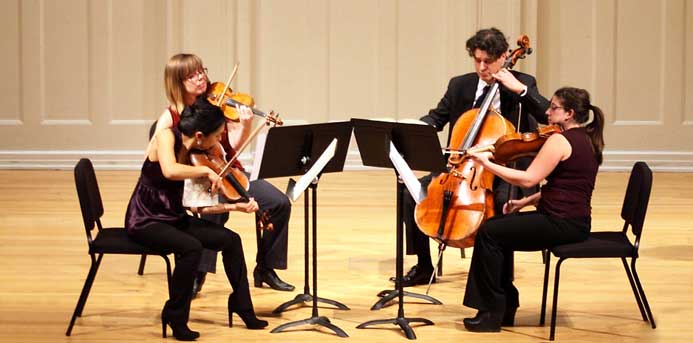With so many music performances available to North Shore residents, it is important to understand how the expectations of audiences have changed.
Previously, audiences of classical music were expected to dress formally, sit quietly and never clap between movements of a piece. An impenetrable wall separated performers and audience members.
Today, most classical musicians acknowledge that this behavioral tradition is an obstacle for many potential listeners. While some venues honor the old traditions, there is a multitude of music making in other venues that has an entirely difference ethos.
Classical music can now be heard in small recital halls, churches, schools, community centers and even in some clubs, where the traditional fare is rock ‘n’ roll. Audience members are encouraged to come as they are and have a very singular listening experience. It is still advisable to avoid talking during the performance, because classical music is usually not amplified, but clapping and cheering is definitely encouraged during breaks—and even between movements.
Smaller venues have the advantage of giving every listener a very personal experience. The visual excitement alone of watching a great musician up close is well worth the price of admission. It is also common for one or more of the performers to briefly speak from the stage, not as a lecturer, but as an expert who can frame the listening experience with anecdotes and listening tips.
This is not your grandfather’s concert experience, but rather one that satisfies our contemporary desire to be informed and to access unique, gratifying musical experiences. Enjoy!
Attend concerts at the Music Institute of Chicago’s Nichols Concert Hall in downtown Evanston, or take music lessons and classes at our Lake Forest, Winnetka, Lincolnshire, Evanston or Chicago campuses.
![]()

